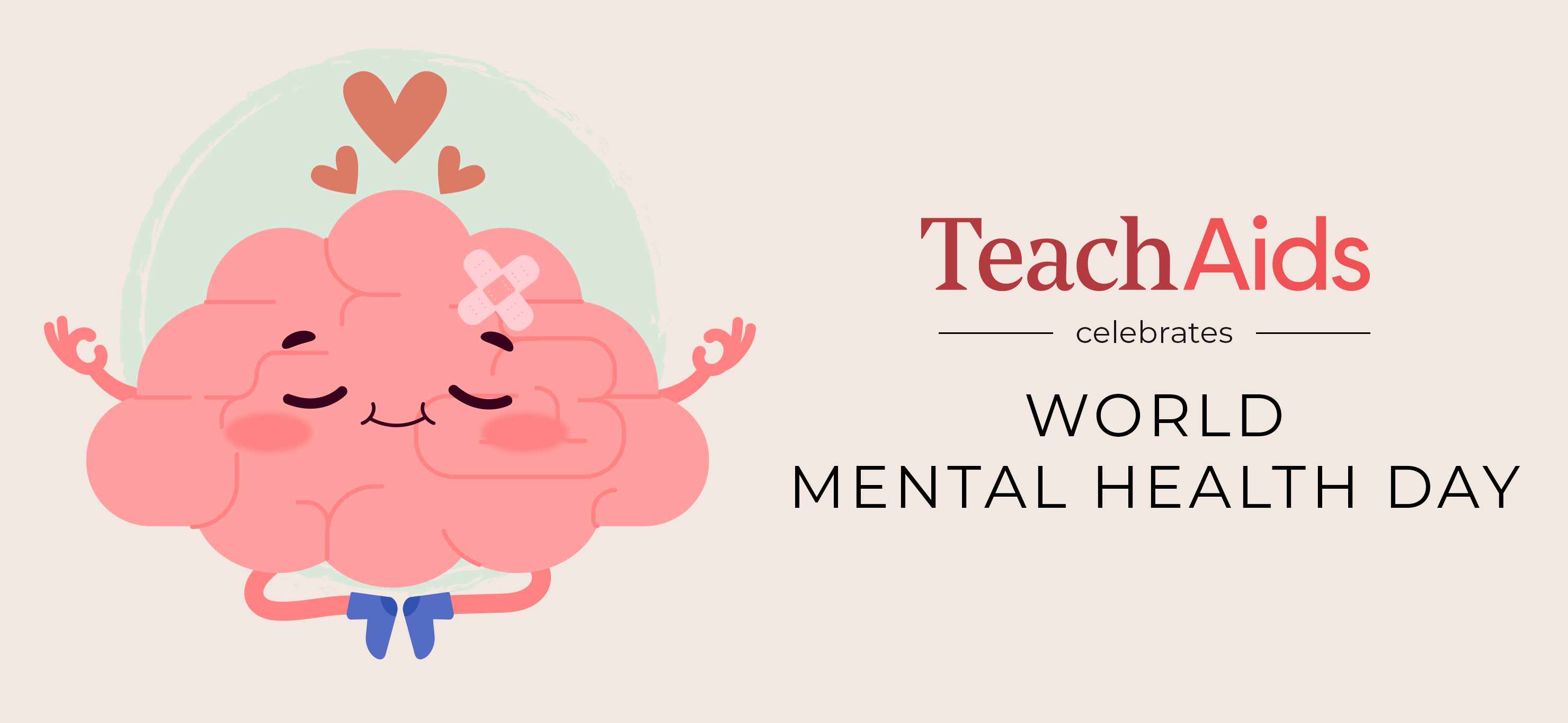
OCTOBER 10, 2022 | for HIV/AIDS, for Concussions, for COVID-19
World Mental Health Day
World Mental Health Day is observed every year on October 10 to raise awareness about mental health, an often-ignored health crisis. ‘Make mental health for all a global priority’ is the theme for 2022, announced by the World Federation for Mental Health (WFMH).
According to recent UN data, 1 billion people are living with a mental disorder globally. Death by suicide leads to more than 700 000 incidents every year. Global drug use has increased 26% over the previous decade. The UN has also reported that areas that were most affected by COVID-19 (with higher infections and social isolation) saw a increased deterioration in mental health. WHO Director-General, Tedros Adhanom Ghebreyesus termed this a ‘wake-up call’ to nations around the world, urging them to drastically improve mental health services. This massive health concern is neglected around the world for several reasons, some of which are the associated social stigma, dismissal due to its perception as a luxury good, insufficient qualified health care experts, and inadequate policy support.
There is a big emotional impact as we emerge from a debilitating pandemic, contend with volatile political situations across the world, and witness the devastating effects of climate change, making worsening mental health a fast-growing concern.
Over the past two years, in addition to coping with the direct physical consequences of COVID-19, individuals around the world also had to deal with loss of loved ones, isolation due to lockdowns, school closures, limited health resources, job insecurity and loss, resulting in significant and long-lasting mental stress. In low-income countries that lack adequate economic resources, accessing mental health support is even harder. Those who live in poverty and disadvantaged communities do not have the social support and financial safety net to navigate these situations, leaving them increasingly vulnerable to mental health struggles.
At TeachAids, we have seen firsthand how health conditions combined with social stigma, insufficient public awareness and a lack of policy support can impact mental health. The stress of living with HIV can lead to an increased likelihood of depression or associated disorders. Dealing with social ostracization, financial burden, and a lack of information can be immensely disheartening.
In fact, three in five school athletes do not report their concussions due to fragmented information and generic or outdated research-based education materials. We designed CrashCourse, an interactive database as a comprehensive mental health resource to benefit a wide range of individuals from athletes, parents, and coaches, to military veterans, athletic trainers, rehab specialists and physicians. The Concussion Story Wall is a database that features numerous informal videos of people sharing their personal concussion stories. We also created CoviDB for Kids, an interactive database with age-appropriate COVID-19-related resources and materials. Navigating an illness with the right framework of support can make a world of a difference.
We are committed to using research-backed education to elevate the well-being of individuals globally. As we move forward in a world that is fraught with social, financial and political challenges, we continue to champion overall well-being, addressing health issues but also underlying concerns around awareness and the restoration of rights, freedom, social inclusion and dignity. We are acutely aware that empowered individuals build empowered societies and mental health concerns must always be a priority.


